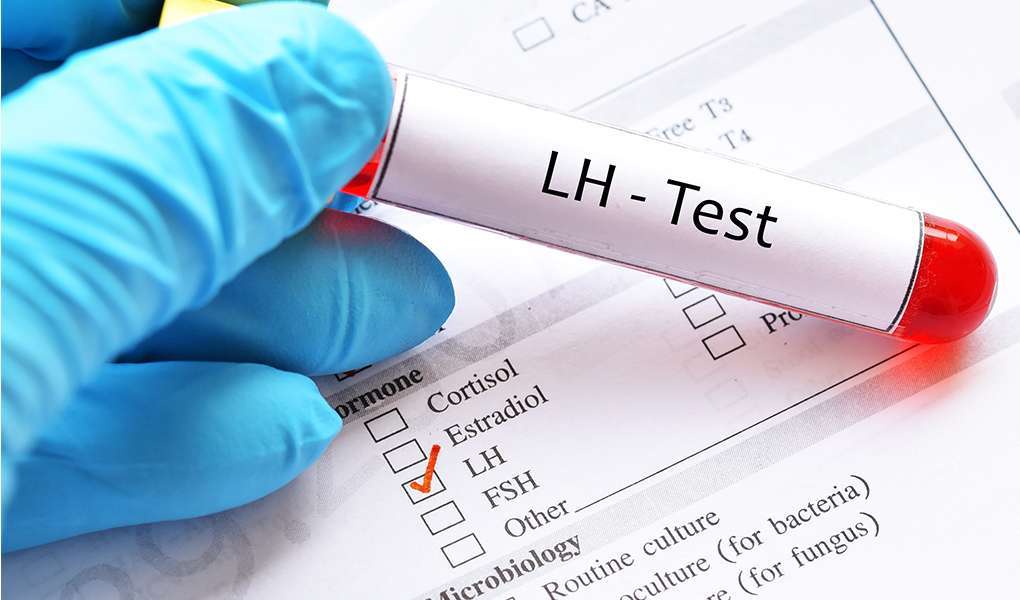Luteinizing Hormone
Luteinizing Hormone

Role of Luteinizing hormone (LH) in the human body
The function of luteinizing hormone in women
The LH hormone is vital in maintaining the menstrual cycle and supporting a healthy pregnancy.Instructions for collection, handling, and transportation of samples:
Ovulation:
Levels of LH are low throughout the menstrual cycle and sharply increase towards the end of the first half of the cycle to reach a peak and trigger Ovulation. A sudden increase in LH level is known as the LH surge in the blood and it triggers ovulation within 2-3 days. Once ovulation is triggered, fertility is at its highest, and after the peak, LH levels decrease again due to negative feedback from estrogen and progesterone secretion. After ovulation, LH levels will decrease regardless of whether fertilization has occurred or not.Pregnancy:
LH hormone stimulates the corpus luteum in your ovaries to produce progesterone during the third or fourth week of your menstrual cycle. Progesterone supports early pregnancy.The function of luteinizing hormone in men:
During puberty, the Luteinizing Hormone increases to stimulate sexual maturity. It helps boost testosterone production in men, leading to full sperm development and fertility throughout life.Abnormal levels of LH hormone in males and Females
High LH in Women
If LH remains high through the menstrual cycle, it means no ovulation is occurring; this could be due to the natural process of menopause or a dysfunction of ovaries in younger individuals. Polycystic ovary syndrome (PCOS) is another condition associated with high LH levels, and it affects around 1 in 10 women worldwide. Whatever the condition, elevated LH causes infertility.
Low LH in Women
In the case of low LH levels, the ovarian disorder is secondary to scarcity of LH. Promoting healthy lifestyles and balanced nutrition helps prevent conditions such as anorexia or bulimia, fostering well-being by avoiding endocrine disruption. In the case of hypopituitarism, the pituitary gland fails to produce sufficient hormones, including LH.
High & low LH In Men
A testicular dysfunction due to cancer treatment with either chemotherapy or radiotherapy causes an elevation of LH due to cellular damage. Chronic kidney disease and renal failure have been linked to high LH concentrations due to secretory dysregulation. Excessive alcohol consumption, either acute or chronic, has also been associated with hypogonadism and increased LH.
Symptoms of abnormal levels of Luteinizing Hormones LH

Irregular Periods

Fertility issues

General symptoms
Standard test to check Luteinizing Hormone (LH) Levels:
Treatment of Luteinizing Hormone Deficiency

Conclusion:
FAQ's Related to Luteinizing Hormone
What is Luteinizing Hormone (LH)?
Luteinizing hormone (LH) is produced by the anterior pituitary gland. It plays a crucial role in regulating the reproductive systems of both men and women by influencing the production of sex hormones such as progesterone, estrogen, and testosterone.
How is LH produced in the body?
LH is produced by the anterior pituitary gland in response to gonadotropin-releasing hormone (GnRH) released by the hypothalamus. It acts on the gonads (ovaries in females and testes in males) to stimulate the production of sex hormones.
How are LH levels tested?
The most common method for measuring LH levels is through a blood test. This involves taking a blood sample from a vein in the arm and sending it to a laboratory for analysis.
When is LH testing recommended?
LH testing is often recommended on the 2nd or 3rd day of menses to assess reproductive health or investigate issues related to the menstrual cycle, fertility, or hormonal imbalances.
How is Luteinizing Hormone Deficiency treated?
Treatment may involve directly targeting LH levels or addressing underlying causes. Gonadotropin therapy is one approach for managing infertility in both men and women.
Before you start your family. Come Visit Ours
